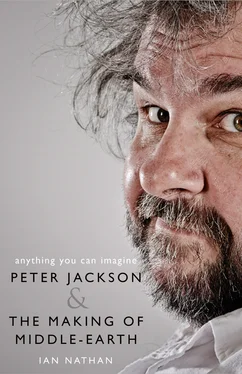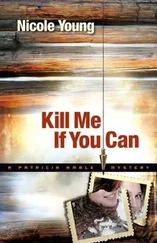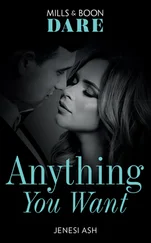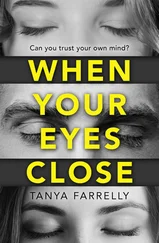That sense of adventure was infectious.
‘The biggest issue was always how do you get into this story?’ Boyens had written plays and dealt with screenwriters, but never attempted a screenplay herself. She was hired first as a script editor on the two-film draft, which was still in need of a prologue. So she volunteered to try and write one. The very first thing she officially set to paper was the opening line, ‘The world has changed …’ Over the arduous months that became years of interminable rewrites and restructuring of ultimately three-intertwined, award-strewn scripts, that line never changed.
*
‘The most difficult thing on this project has been the script. The script has been a total nightmare.’ Jackson was speaking in Cannes in 2001, where he had unveiled twenty-six minutes of footage to raptures from the world’s press. The question of how one successfully adapts Tolkien had come up frequently. Something he had been doing his level best to answer for six years.
He mused that it was about getting the balance right. To have the characters represent both Tolkien’s intentions and be accessible for a modern cinema audience who didn’t have a clue about hobbits or Elves. ‘It’s about trying to please as many people as possible,’ he explained, which he knew sounded horribly general. ‘But to reach people,’ he insisted, ‘you have to start by pleasing yourself. And that is what I did. I thought simply of the film I dreamed of seeing.’
Costa Botes has a memory of seeing the script for Bad Taste. Or the lack of it — it was little more than lines scribbled on increasingly crumpled pieces of paper in biro. Jackson had had no idea how to write a formal script. Walsh at least had some experience writing for television. ‘But both of them got religion when Robert McKee made a rare excursion to Wellington and they attended his seminar.’
McKee was the Detroit-born playwright and screenwriter turned hugely influential creative screenwriting guru touring the world with his famous Story Seminar. He preached a gospel that it was narrative structure that made a story compelling rather than any of its component pieces: plot, dialogue, characters, etc. You must tell a story .
Enlightened, Jackson and Walsh changed their entire approach to screenwriting. Out of which came Meet the Feebles, Braindead — which for all its gore is elegantly structured — and, in time, their Planet of the Apes and Freddy Krueger scripts. Says Botes, ‘I remember Pete showing me the third draft of Heavenly Creatures . It’s a masterpiece. That’s an unbelievable development in a very short space of time.’
Deep-rooted into Jackson’s philosophy of filmmaking was the certainty that he, alongside Walsh, would always generate the screenplay. Writing and shooting were stages on the same journey. This is one of the reasons he could hold three films in his head at one time — the scripts were ingrained.
From the moment he reread The Lord of the Rings , however, it was clear McKee’s principles would be put to a severe test. Tolkien had taken seventeen years to write the damn thing. It was dauntingly complex. Jackson and Walsh had to go back over and over things — ‘assembling it in their heads’ — seeing how it all connected, figuring out what made this book they had fought doggedly to adapt so adored? More to the point, what, if anything, made it cinematic?
*
The Book : The debate over the relative literary merits of Tolkien’s great opus has raged since its publication. There is no arguing that a vast readership is devoted to the point of religious fervour. Indeed, this intense popularity is partly what inflames the literati. Why can’t it just be forgotten? They would surely miss it if it were to pass out of fashion. They make such sport out of mocking the book. The aforementioned Edmund Wilson surmised that ‘certain people — especially, perhaps, in Britain — have a lifelong appetite for juvenile trash’. The general tenor of literary disgust aggregates around its supposed childishness and lack of moral depth, irony, theme or allusion.
When it was crowned ‘the greatest book of the century’ by a public poll in 1997 the journalist Susan Jeffreys led a chorus of snobby intellectuals in a familiar song. Writing in The Sunday Times , she feared she might actually catch something from the book. ‘I won’t keep the thing in the house,’ she insisted. For the article, she had borrowed a copy and complained about its ‘stale, bedsittish aroma’. Ultimately, she found it depressing to find so many readers ‘burrowing an escape into a non-existent world’ and its popularity proved ‘the folly of teaching people to read’.
There is no doubt of Tolkien’s appeal to readers of a certain age. This might in part be about escapism. Neil Gaiman, the celebrated fantasy author, recalled that at fourteen all he wanted to do was write The Lord of the Rings . Not the equivalent high fantasy, but the actual book. Which was awkward, he admitted, as Tolkien had already done so.
But Jeffrey’s ‘non-existent’ feels underpowered. Tolkien is far from divorced from the real world.
Yes, the story does transport people. The wonderful, unquenchable invention that sheers off every page is intoxicating. ‘It is a really exceptional and remarkable creation, an entire cosmology in itself,’ enthused actor John Rhys-Davies, who had long considered the book beneath him. This has led to obsession, if not addiction. Jackson and Walsh were keenly aware that they needed to escape the closed feedback loop of Tolkien fixation. In this, their relative ambivalence toward the text to begin with was an advantage.
Nevertheless, re-reading The Lord of the Rings through a cinematic lens revealed a store of promise for the filmmakers.
In 1938, Tolkien gave a lecture at the University of St. Andrews in Fife, Scotland, in which he highlighted the necessary components of ‘the office of fantasy’. A fantasy world, he insisted, while ‘internally consistent’ must possess ‘strangeness and wonder’. It must have a freedom from observed fact. The laws of physics while largely upheld can be a tiresome constraint on mythical storytelling. Quite how Sauron has uploaded a crucial portion of his malign life force into a golden ring is not worth deliberating. Above all, he declared, the secondary world must be credible, ‘commanding belief’.
Tolkien was not shy about the fact he had fashioned Middle-earth from the forges of history. This wasn’t an alternative universe but our own. Richard Taylor fixates with great pleasure on the estimation that the story can be located to an interglacial lull in the Pleistocene. Are we to consider the mûmakil relations of mammoths? Are the fell beasts a species of Pterodactyl?
It is a perspective somewhat undone by the Edwardian trappings of Hobbiton, although Jackson describes it as ‘a fully developed society and environment the records have since forgotten.’
Within the fabric of the world and the weft of the storytelling came Tolkien’s firm instruction to Jackson — command belief .
And contrary to critical opinion, the book possesses a rich seam of theme and allusion. This was something the arrival of Boyens really brought home. She educated her partners in what lay behind the book that Jackson admits they ‘really hadn’t grappled with’. A depth, she felt, that would elevate their films above the gaudy clichés of the barbarian hordes.
Says Jackson, ‘We hadn’t understood that he cared passionately about the loss of the natural countryside, for example. He was very much this nineteenth century, pre-Industrial Revolution guy against the factories and the enslavement of the workers in factories. Which is what Saruman is all about.’
Читать дальше












